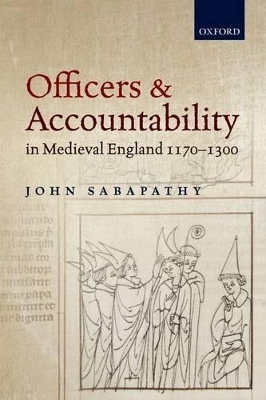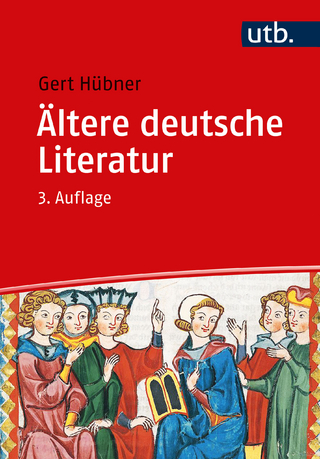
Officers and Accountability in Medieval England 1170--1300
Seiten
2014
Oxford University Press (Verlag)
978-0-19-964590-9 (ISBN)
Oxford University Press (Verlag)
978-0-19-964590-9 (ISBN)
A volume which examines twelfth and thirteenth century officers and the practices used to regulate them in England, placing them not only within a British context but also a wider European one and exploring how administration, law, politics, and norms where used to control the insolence of office.
The later twelfth and thirteenth centuries were a pivotal period for the development of European government and governance. During this period a mentality took hold which trusted to procedures of accountability as a means of controlling officers' conduct. The mentality was not inherently new, but it became qualitatively more complex and quantitatively more widespread in this period, across European countries, and across different sorts of officer. The officers exposed to these methods were not just 'state' ones, but also seignorial, ecclasistical, and university-college officers, as well as urban-communal ones. This comparative study surveys these officers and the practices used to regulate them in England. It places them not only within a British context but also a wide European one and explores how administration, law, politics, and norms tried to control the insolence of office.
The devices for institutionalising accountability analyzed here reflected an extraordinarily creative response in England - and beyond - to the problem of complex government: inquests, audits, accounts, scrutiny panels, sindication. Many of them have shaped the way in which we think about accountability today. Some remain with us. So too do their practical problems. How can one delegate control effectively? How does accountability relate to responsibility? What relationship does accountability have with justice? This study offers answers for these questions in the Middle Ages, and is the first of its kind dedicated to an examination of this important topic in this period.
The later twelfth and thirteenth centuries were a pivotal period for the development of European government and governance. During this period a mentality took hold which trusted to procedures of accountability as a means of controlling officers' conduct. The mentality was not inherently new, but it became qualitatively more complex and quantitatively more widespread in this period, across European countries, and across different sorts of officer. The officers exposed to these methods were not just 'state' ones, but also seignorial, ecclasistical, and university-college officers, as well as urban-communal ones. This comparative study surveys these officers and the practices used to regulate them in England. It places them not only within a British context but also a wide European one and explores how administration, law, politics, and norms tried to control the insolence of office.
The devices for institutionalising accountability analyzed here reflected an extraordinarily creative response in England - and beyond - to the problem of complex government: inquests, audits, accounts, scrutiny panels, sindication. Many of them have shaped the way in which we think about accountability today. Some remain with us. So too do their practical problems. How can one delegate control effectively? How does accountability relate to responsibility? What relationship does accountability have with justice? This study offers answers for these questions in the Middle Ages, and is the first of its kind dedicated to an examination of this important topic in this period.
John Sabapathy is a Lecturer in Medieval History at University College, London. He has published on various aspects of accountability in the Middle Ages. Before this he worked for almost a decade on aspects of contemporary corporate accountability and sustainability with a range of governmental departments and companies in the UK and internationally.
1. Introduction ; 2. Bailiffs and stewards ; 3. Sheriffs ; 4. Bishops ; 5. Wardens and Fellows ; 6. Conclusions ; Select Bibliography
| Verlagsort | Oxford |
|---|---|
| Sprache | englisch |
| Maße | 170 x 241 mm |
| Gewicht | 650 g |
| Themenwelt | Geschichte ► Allgemeine Geschichte ► Mittelalter |
| Geisteswissenschaften ► Geschichte ► Regional- / Ländergeschichte | |
| Geschichte ► Teilgebiete der Geschichte ► Kulturgeschichte | |
| Geschichte ► Teilgebiete der Geschichte ► Religionsgeschichte | |
| Recht / Steuern ► EU / Internationales Recht | |
| Sozialwissenschaften ► Politik / Verwaltung ► Politische Theorie | |
| ISBN-10 | 0-19-964590-6 / 0199645906 |
| ISBN-13 | 978-0-19-964590-9 / 9780199645909 |
| Zustand | Neuware |
| Haben Sie eine Frage zum Produkt? |
Mehr entdecken
aus dem Bereich
aus dem Bereich
eine neue Geschichte des Mittelalters
Buch | Hardcover (2023)
C.H.Beck (Verlag)
38,00 €


